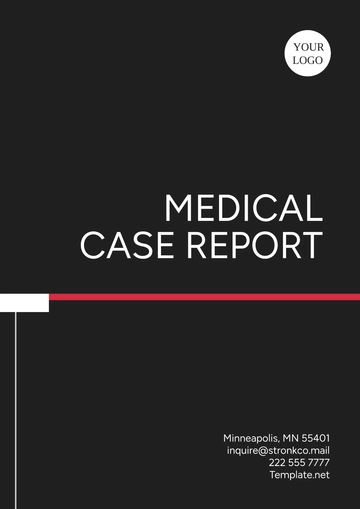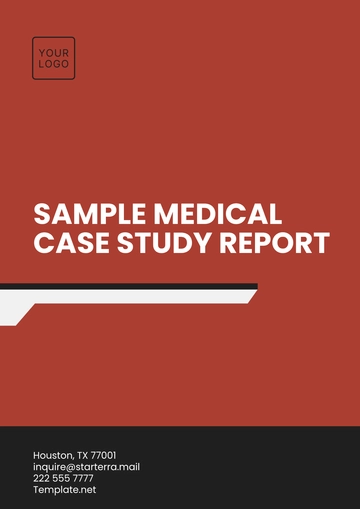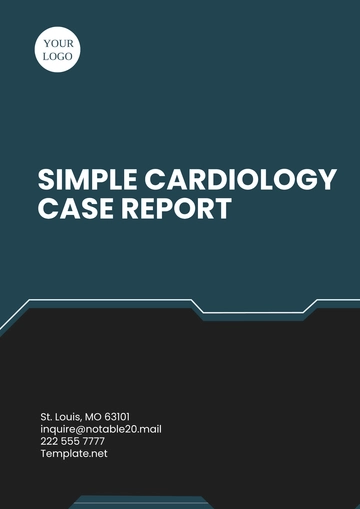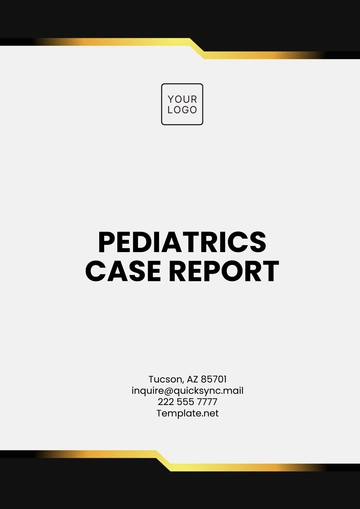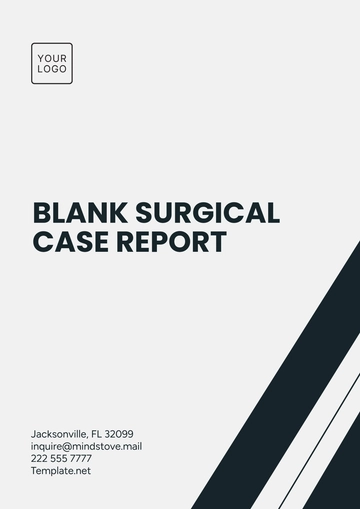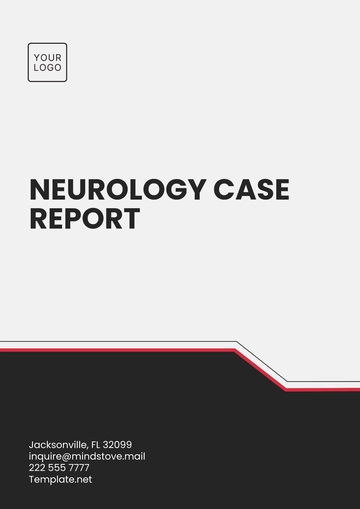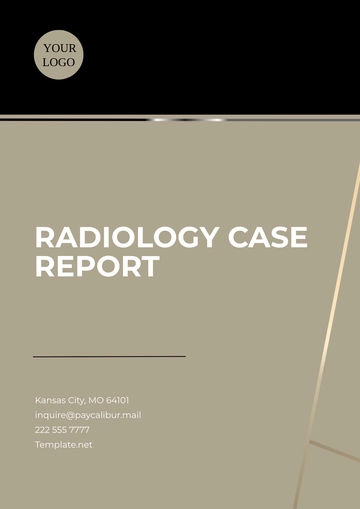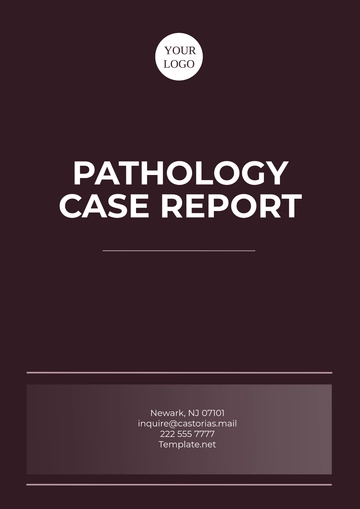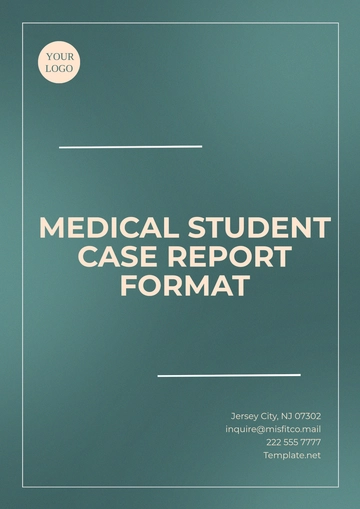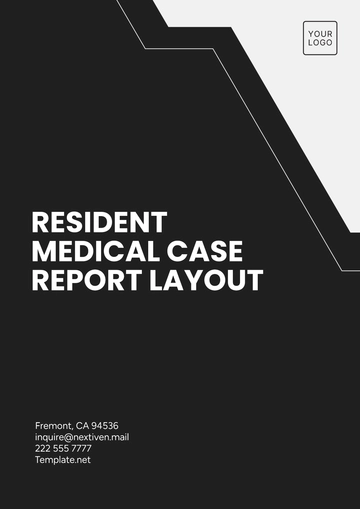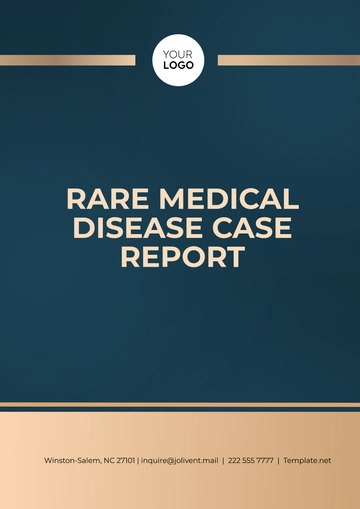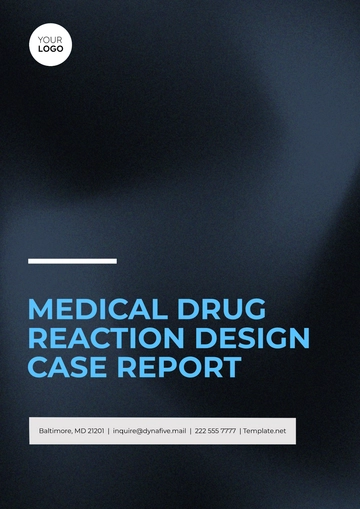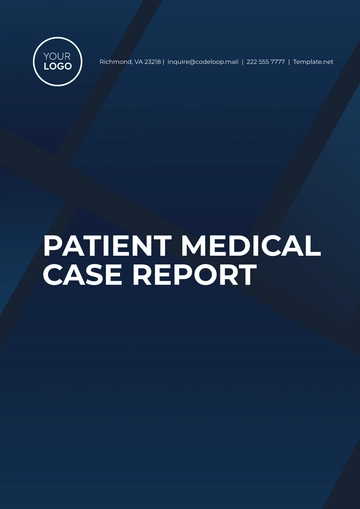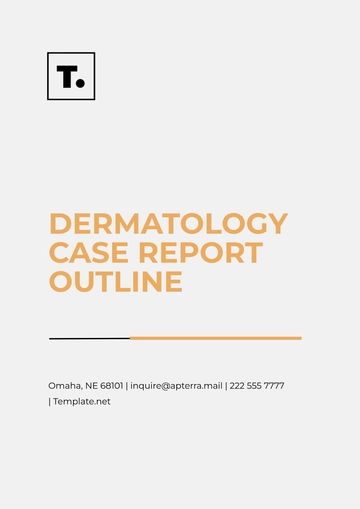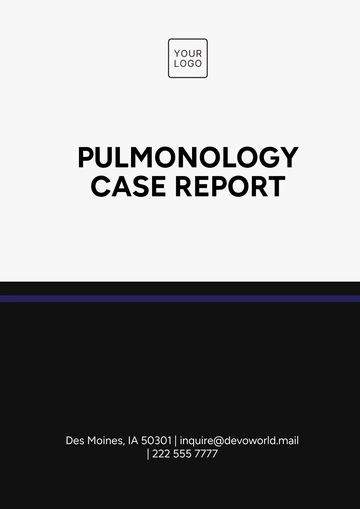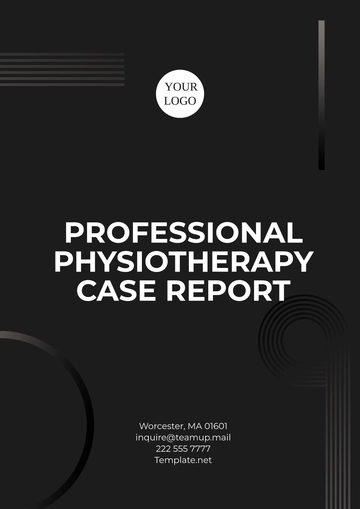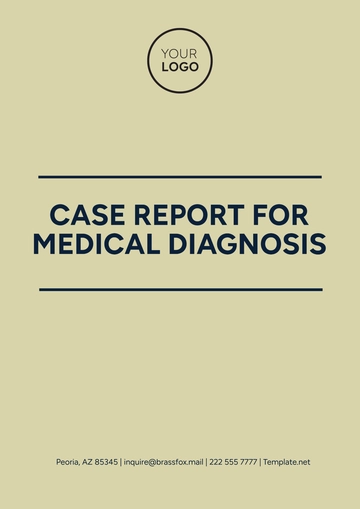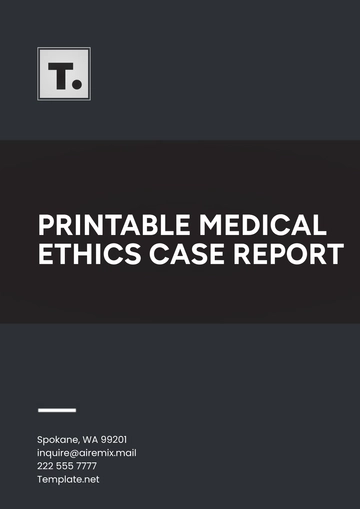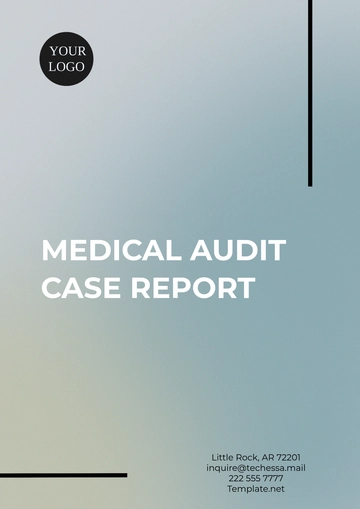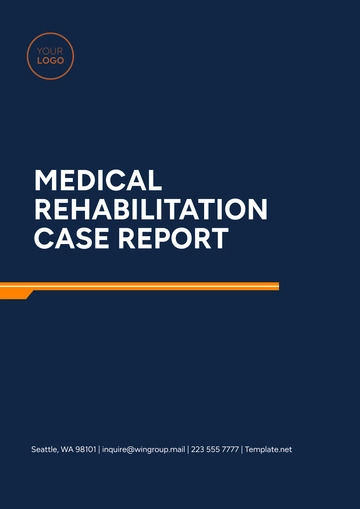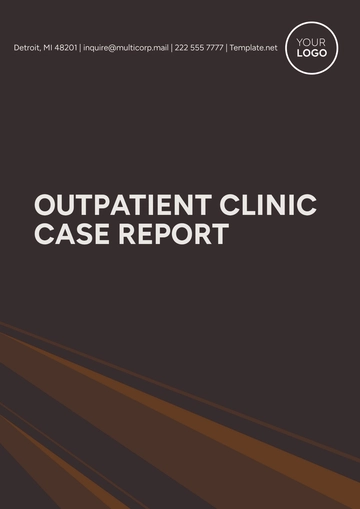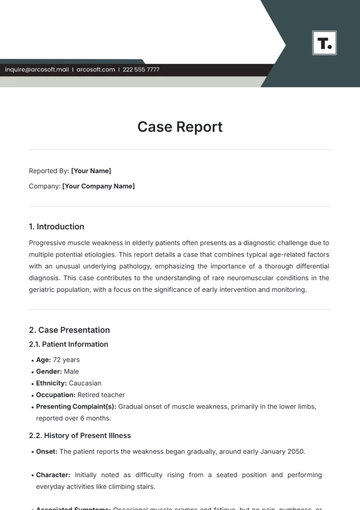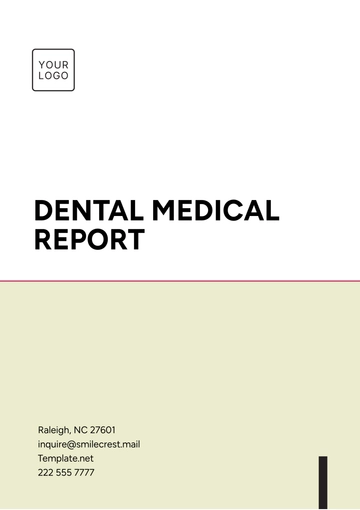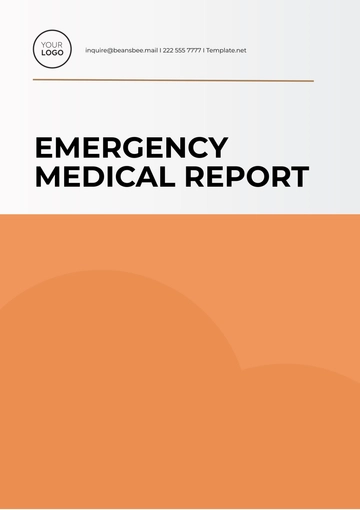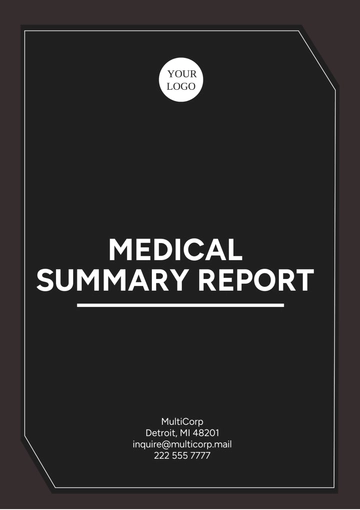Free Medical Report
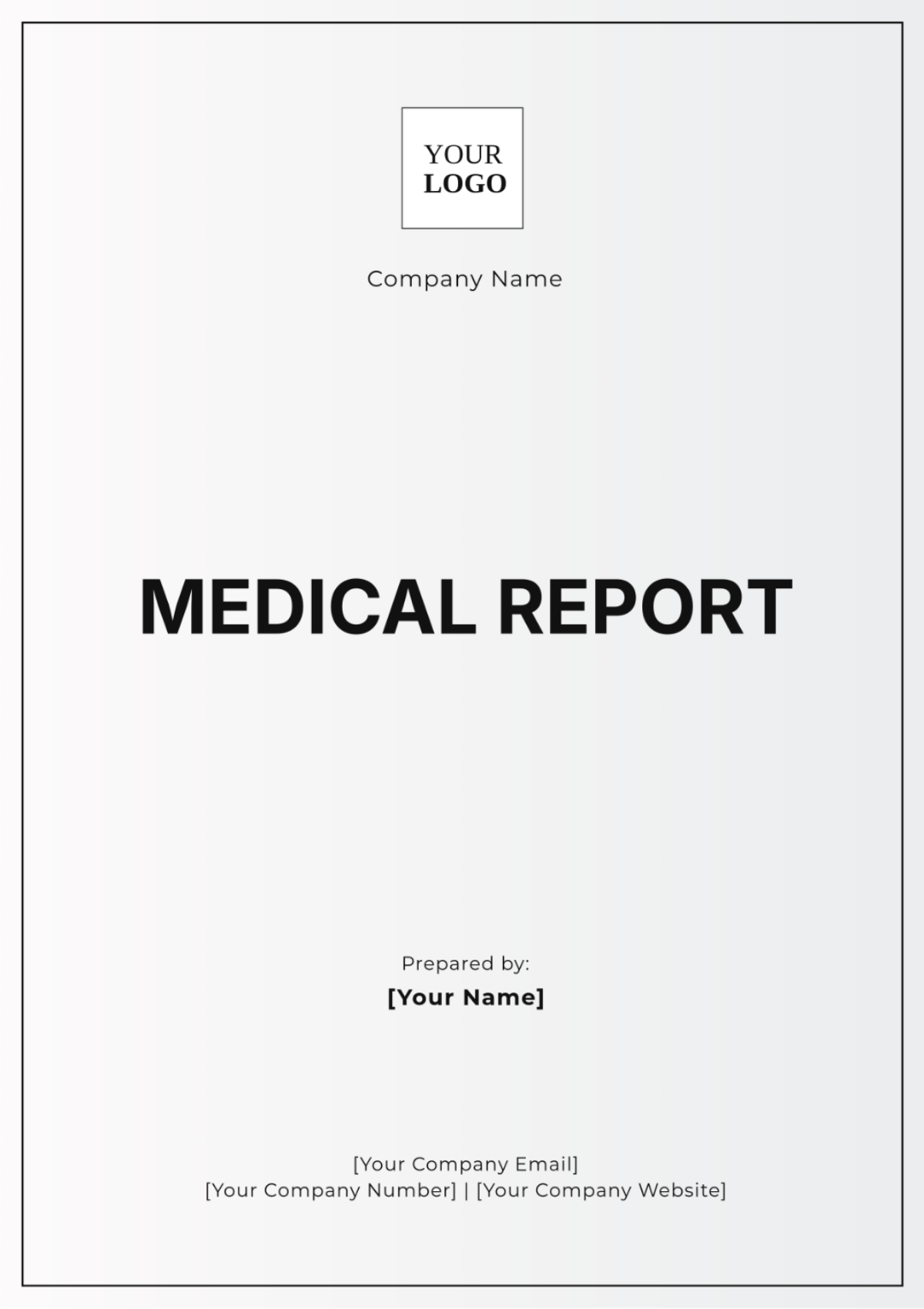
I. Patient Information
Name: [Patient's Name]
Date of Birth: [Patient's Birthdate]
Gender: Male
Address: [Patient's Address]
Phone Number: [Patient's Contact Number]
Email: [Patient's Email]
II. Chief Complaint
The patient presents with a 6-month history of persistent depressive symptoms, including sadness, hopelessness, and loss of interest in activities such as reading and hiking, which he previously enjoyed. He also reports difficulty sleeping, often waking up during the night, and problems concentrating at work, leading to decreased productivity. He has become increasingly irritable and tired and reports low energy throughout the day. There are no reports of suicidal ideation, but he expresses feelings of overwhelm.
III. History of Present Illness (HPI)
[Patient's Name] reports that his symptoms began approximately 6 months ago following the death of a close friend. Initially, he felt mild sadness and tiredness, which worsened over time. He now experiences persistent sadness, insomnia, and anhedonia (inability to find pleasure in activities). He describes feelings of worthlessness and self-doubt that affect his work as a project manager, where he has noticed decreased performance and struggles to complete tasks. There is no history of manic or hypomanic episodes, and he denies any substance abuse.
IV. Past/Family Psychiatric History
Personal Psychiatric History: John reports no prior psychiatric treatment. He has never been diagnosed with depression, anxiety, or any other mental health conditions, and has never been hospitalized for mental health reasons.
Family Psychiatric History: He mentions that his maternal aunt was diagnosed with Major Depressive Disorder and has been on medication for many years. His mother has also experienced periodic depressive episodes but has not sought formal treatment. There is no known family history of bipolar disorder, schizophrenia, or substance abuse.
V. Medical History
Diagnosed with Hypertension 5 years ago, currently managed with Lisinopril 10 mg daily.
No history of diabetes, heart disease, or respiratory issues.
No previous surgeries or hospitalizations.
Immunizations are up to date.
VI. Medications
Current Medications: John is not currently taking any prescribed psychiatric medications.
He reports the occasional use of over-the-counter sleep aids, such as diphenhydramine (Benadryl), to help with his insomnia, usually 2-3 times a week.
He takes Lisinopril 10 mg daily for hypertension.
VII. Allergies
No known drug allergies (NKDA).
No food or environmental allergies were reported.
VIII. Mental Status Examination
Appearance: John appeared well-groomed and appropriately dressed for the season.
Behavior: He was cooperative throughout the interview and made good eye contact.
Speech: His speech was fluent, coherent, and of normal rate and volume.
Mood: John described his mood as "very low" and feeling persistently sad.
Affect: His affect was restricted, congruent with his reported mood.
Cognition: Fully oriented to person, place, and time. He exhibited no cognitive deficits in memory or concentration during the interview.
Insight and Judgment: His condition required appropriate insight. His judgment appeared intact, as evidenced by his willingness to seek help.
IX. Diagnostic Assessment
Based on clinical evaluation and DSM-5 criteria, John Doe meets the diagnostic criteria for:
Major Depressive Disorder (MDD), single episode, moderate severity.
There are no psychotic features, suicidal ideation, or indications of bipolar disorder at this time. His symptoms are significantly impacting his ability to function in both personal and professional aspects of his life.
X. Treatment Plan
Pharmacotherapy:
Begin Sertraline (Zoloft) 50 mg daily, taken in the morning. Side effects such as nausea, headaches, or sleep disturbances will be monitored. A follow-up to assess medication response will be scheduled in 4 weeks.
Psychotherapy:
Referred to cognitive-behavioral therapy (CBT) with a licensed therapist to address negative thought patterns and to implement behavioral activation strategies.
Weekly sessions for 8 weeks have been recommended.
Psychoeducation:
The patient has been provided with educational materials about Major Depressive Disorder, the importance of medication adherence, self-care, and regular therapy participation. Instructions were given on sleep hygiene and the benefits of regular physical activity, such as walking for 20-30 minutes daily.
Lifestyle Adjustments:
Encouraged to establish a routine that includes light physical activity such as walking or yoga, improve sleep hygiene by limiting caffeine and screen time before bed, and maintain a healthy diet to support overall well-being.
Follow-Up:
A follow-up appointment is scheduled in 4 weeks to evaluate treatment response, assess any side effects from medication, and adjust the dose if necessary.
XI. Prognosis
With consistent medication adherence, active engagement in CBT, and lifestyle adjustments, the prognosis for John Doe’s Major Depressive Disorder is favorable. Mood, energy levels, and cognitive function improvements are expected within the next 6-12 weeks. Continued monitoring will help to prevent any relapses or worsening of symptoms.
XII. Follow-Up Instructions
[Patient's Name] will return for a follow-up appointment in 4 weeks.
In the event of emergency symptoms such as worsening depression, suicidal thoughts, or significant side effects from the medication, he or his family should contact the clinic immediately at [Your Company Number].
Attending all follow-up appointments was emphasized, and the patient was reminded to call with any concerns between visits.
Prepared by:
 [Your Name]
[Your Name]
Attending Physician
- 100% Customizable, free editor
- Access 1 Million+ Templates, photo’s & graphics
- Download or share as a template
- Click and replace photos, graphics, text, backgrounds
- Resize, crop, AI write & more
- Access advanced editor
Accurately document medical information with the Medical Report Template by Template.net. This customizable and downloadable template provides a structured format for recording patient details, diagnoses, and treatments. Printable for ease of use, it can be effortlessly tailored to your specific requirements using our AI Editor Tool. Ensure precision and professionalism in your medical reporting with this essential template.
You may also like
- Sales Report
- Daily Report
- Project Report
- Business Report
- Weekly Report
- Incident Report
- Annual Report
- Report Layout
- Report Design
- Progress Report
- Marketing Report
- Company Report
- Monthly Report
- Audit Report
- Status Report
- School Report
- Reports Hr
- Management Report
- Project Status Report
- Handover Report
- Health And Safety Report
- Restaurant Report
- Construction Report
- Research Report
- Evaluation Report
- Investigation Report
- Employee Report
- Advertising Report
- Weekly Status Report
- Project Management Report
- Finance Report
- Service Report
- Technical Report
- Meeting Report
- Quarterly Report
- Inspection Report
- Medical Report
- Test Report
- Summary Report
- Inventory Report
- Valuation Report
- Operations Report
- Payroll Report
- Training Report
- Job Report
- Case Report
- Performance Report
- Board Report
- Internal Audit Report
- Student Report
- Monthly Management Report
- Small Business Report
- Accident Report
- Call Center Report
- Activity Report
- IT and Software Report
- Internship Report
- Visit Report
- Product Report
- Book Report
- Property Report
- Recruitment Report
- University Report
- Event Report
- SEO Report
- Conference Report
- Narrative Report
- Nursing Home Report
- Preschool Report
- Call Report
- Customer Report
- Employee Incident Report
- Accomplishment Report
- Social Media Report
- Work From Home Report
- Security Report
- Damage Report
- Quality Report
- Internal Report
- Nurse Report
- Real Estate Report
- Hotel Report
- Equipment Report
- Credit Report
- Field Report
- Non Profit Report
- Maintenance Report
- News Report
- Survey Report
- Executive Report
- Law Firm Report
- Advertising Agency Report
- Interior Design Report
- Travel Agency Report
- Stock Report
- Salon Report
- Bug Report
- Workplace Report
- Action Report
- Investor Report
- Cleaning Services Report
- Consulting Report
- Freelancer Report
- Site Visit Report
- Trip Report
- Classroom Observation Report
- Vehicle Report
- Final Report
- Software Report
